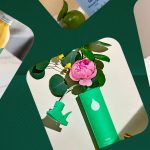**The Bottled Water Industry: A Lesson in Purity**
The bottled water industry is built on promises of purity and trustworthiness. However, a recent incident involving Perrier, a subsidiary of Nestlé, has shaken this belief and sparked concerns across the industry and beyond. What happens when a renowned brand faces a quality control crisis? Nestlé is facing this challenge head-on by discarding two million bottles of its famous sparkling water due to the detection of fecal bacteria in one of its wells. How will this impact consumer trust, and what steps is Nestlé taking to prevent such a recurrence?
**The Perrier Predicament: Understanding Contamination Crisis**
The crisis at Perrier began with the unsettling discovery of fecal bacteria in one of its trusted water wells. This led French health authorities to intervene immediately, halting the use of the contaminated well and demanding product safety assurances from Perrier before further distribution.
This revelation forced the company to dispose of two million bottles of water, a significant measure to prevent health risks. This incident sheds light on the challenges faced by large bottled water producers in maintaining product purity and the potential for contamination even in apparently secure environments.
**Regulatory Oversight and Industry Standards: An Examination**
The Perrier contamination incident highlights the role of regulatory frameworks governing the bottled water industry. Despite bodies like the FDA in the US and EFSA in Europe setting strict standards for safety, the discovery of fecal bacteria raises questions about the effectiveness of current regulations and oversight practices.
This incident underscores the need for more rigorous self-regulation and continuous improvements in safety measures to prevent issues reaching consumers.
**Consumer Confidence and Market Impact**
The contamination scare at Perrier has generated consumer anxiety about the reliability of bottled water products. Rebuilding trust after such an incident is arduous, especially for an established brand like Perrier. This shift in consumer sentiment could impact not only Perrier but the entire bottled water market.
Competitors may benefit from consumer caution, while a general decline in trust could lead to increased demand for home water purification systems. Economically, Perrier faces immediate losses from product recalls, potential market share declines, and possible industry-wide pricing adjustments.
**Advancements in Safety Technologies: Forging a Secure Future**
Post the Perrier contamination incident, the bottled water industry must invest in advanced safety and testing technologies to prevent future crises. Embracing technological innovations can enhance contamination detection and ensure consumer safety.
Investments in technologies such as real-time monitoring, advanced filtration, and blockchain for supply chain transparency can set new safety standards in the bottled water sector.
**Clean Drinking Water: A Fundamental Right**
Access to clean drinking water is a fundamental human right crucial for health, well-being, and economic stability. The purity of water impacts health outcomes, economic development, social equality, and environmental sustainability.
**Tips for Home Water Safety**
Maintaining a clean water supply at home is essential for health and well-being. Simple tips like regularly checking and replacing filters, avoiding plastic bottles, and using water purification systems can help ensure the safety of your home water supply.






